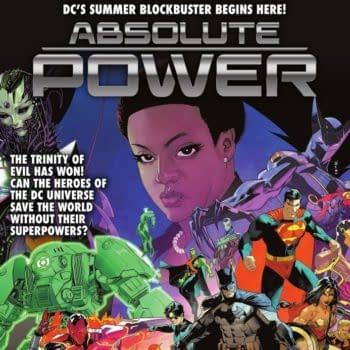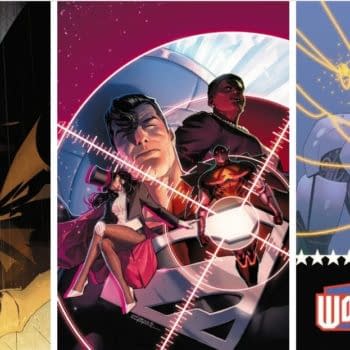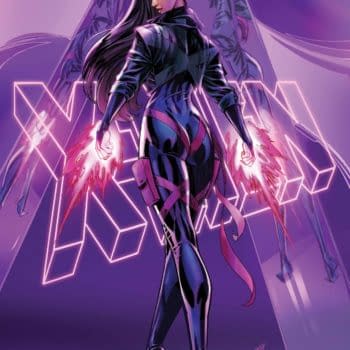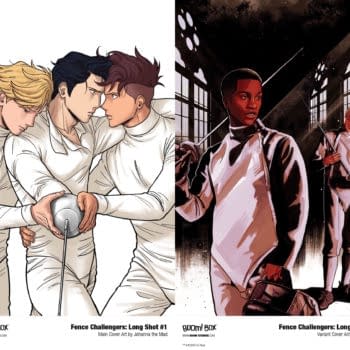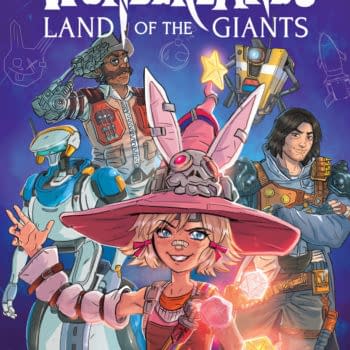Posted in: Comics, DC Comics | Tagged:
Paul Levitz on How Vertigo Changed Comics
Paul Levitz became President and Publisher of DC Comics after thirty years of working editorially at DC Comics. During that time he also began the Vertigo imprint at DC Comics, consolidating a series of mature readers titles such as Swamp Thing, Hellblazer, Doom Patrol, Animal Man, Shade The Changing Man and Sandman that had been gaining popularity, under editor Karen Berger. And, almost thirty years later, that imprint is no more. Bleeding Cool has talked about a number of the reasons behind that move, from changing contracts to the new President's personal dislike of imprints, and lots of creators have been pitching in – as have Karen Berger and Shelly Bond.
Paul Levitz has also been sharing his thoughts and observations in a number of posts on Facebook. He writes,
Incredibly sad to note the official passing of Vertigo, one of the proudest achievements I contributed to as DC's Publisher. Karen Berger's time there will, I believe, continue to be recognized as one of the handful of magic moments in comics' history, along with E.C. under Bill Gaines, Al Feldstein and Harvey Kurtzman, and Marvel led by Stan Lee, Jack Kirby and Steve Ditko.
No argument here.
If I can celebrate the life of comics friends who pass, it seems fitting to do the same for Vertigo. So here's the first of a few memories of Vertigo's milestones.
Neil Gaiman's SANDMAN established the model that was the engine for Vertigo's success: a series that became trade paperbacks which continued to sell; each time a new volume came out, the back numbers jumped again. It wasn't a unique idea–book publishers had done it for ages, and Dave Sim had brought it to comics for CEREBUS in the direct market, but SANDMAN was the breakthrough that set up the most profitable business model for American comics since the periodical. So many series followed that model, and then Warren Ellis & Darick Robertson's TRANSMETROPOLITAN took it to a new level, becoming the first comic series whose paperback sales financed continuing the periodical.
I remember the days of Transmetropolitan being under the threat of cancellation until the collection sales kicked in. Recently we've seen Marvel revive a number of series as a result of just this.
Another view of Vertigo: one under-appreciated aspect of the impact Karen Berger and Vertigo had on comics is the degree to which it was the primary garden for developing great writers and editors. I hold to the belief that even the best editor doesn't make a great writer–the talent is the writer's own, and in most cases they'd ultimately be published by someone. But the best editors–and certainly Karen and her team–can play a critical role in developing a writer to their full potential. And whether it was the brigade of Brits or the later army of Americans who came to prominence at Vertigo, it's undeniable that Karen had a hand in making star writers disproportionate to any other editor in comics, ever.
The approach she took, working through draft after draft of new series or simply newbies, was followed by her team as well. And the model she set, making her writers feel 'authorial' and in control in a way that was revolutionary in comics 25-30 years ago, was the rule for Vertigo. Her editors learned to manage creators and creative processes, and the result not only affected Vertigo and DC, but so much of American comics. Think of the roll call: Alex Alonso, Shelley Bond, Cliff Chiang, Will Dennis, Joan Hilty, Alisa Kwitney, Jenny Lee, Heidi Macdonald, Mariah McCourt, Stuart Moore, Tom Peyer,Ponsack Pinichote, Lou Stathis, Art Young–not all had perfect happiness working with Karen, but she was an early influence, and tally up the cumulative effect they've had on comics. Beyond comics too–check the imdb for Julie Rottenberg to see a Vertigo alum make good. And I'm sure I'm forgetting some folks as I write this (sorry).
Vertigo didn't just set a standard…it sent out the troops to make or beat that standard across the field.
I've heard lots of strong-armed Vertigo editorial. Just I've heard only a few complaints about it.
One more view of Vertigo: Much of the discussion of Vertigo has centered on the contract structures the imprint used, and when they were perceived as more creator-friendly or, in possibly the most fuzzy term in the comics business, 'creator-owned.' It's certainly true that offering better terms for new properties independent of the DC Universe of heroes was part of Vertigo's success, but I'd argue that the fundamental power of Vertigo started from having an underlying creative point of view. Karen sometimes simply said it was putting out things she wanted to read, but I identified it as series that unsettled the readers' perception of the world. Whether by looking at subjects comics had been reluctant to touch (from Alan's SWAMP THING explorations in pre-Vertigo days on), or having characters espouse challenging attitudes and philosophies (Neil's Death taking on the AIDS crisis), or centering entire series on controversial subjects (Garth's PREACHER), a good Vertigo comic was just a wee bit uncomfortable. Contracts, editorial approaches to how talent was dealt with, branding and marketing all contributed to this working, but in the end those could be duplicated–editorial point of view is much harder to clone.
I also remember how much Paul really didn't like Preacher…







